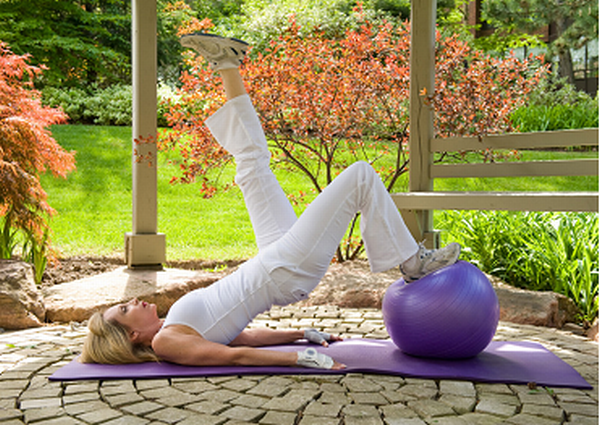
Lupus is a disease in which normal cells are attacked by one’s immune system causing inflammation, swelling, and damage to joints, skin, kidneys, blood, the heart and lungs. Lupus takes away the capability of the immune system to differentiate between antigens and healthy tissue leading the immune system to direct antibodies against the healthy tissue causing swelling, pain, and tissue damage.
Exercise is a dreadful thought to any person suffering from lupus. The thought of exercising with already existing pain is more painful. One just wants to rest to get rid of the joint pain and the tiredness, but research shows that exercise helps in building stronger muscles, prevents joint stiffness, controls fatigue, and avoids weight gain. It is very necessary to consult your physician before starting any kind of an exercise regime to avoid any new damage to your joints and muscles.Your doctor will also advice you about the movements that will help you or the movements that should be avoided lest causing you further damage.
Exercise keeps a check on your health when you have lupus; it makes you stronger , improves movement, your mental health, brings down fatigue and prevents side effects of medications. David Wofsy, a professor of medicine at the University of California at San Francisco says that low-impact exercise can strengthen muscles,make them flexible, and increase the movement. American College of Rheumatology lists out four types of exercises that people with lupus are benefited by performing. These are exercises for increasing movement and strength, aerobic, and body awareness.
Following are the benefits that exercise can have in Lupus:
1. You become stronger and more flexible
Flexibility exercises such as stretching and range-of-motion movements can reduce stiffness and help make you more limber. Strengthening exercises include resistance training or weight-lifting in which muscles work more vigorously and contribute to better joint support. Aerobics are activities which use the body’s large muscles and improve heart and lung functions,such as dancing, water exercises, bicycling, or walking. Tai chi, yoga and pilates are body awareness exercises which improve posture, balance, and coordination.
2. Makes you strong mentally
According to studies, more than 50% of people with chronic illness tend to experience clinical depression. Exercise plays an important role in overcoming symptoms of depression. It helps people to stay fit mentally. British Journal of Sports Medicine published a study report in 2008, according to which just 20 minutes of exercise a week can improve mental health. Participants who got involved in simple physical activities demonstrated lower levels of depression. Gardening, walking pets, and doing everyday household chores also help in lowering mental distress.
3. Helps you to beat side effects of the medication
Exercise also helps in getting rid of the side effects caused by the medication. Lupus medications, especially steroids like prednisone cause weight gain in most of the cases along with increase in blood pressure, cholesterol, and blood sugar, too. Regular exercise can help one prevent all these side effects. Steroids also lead to an increase in appetite which further leads to the rest of the problems. To avoid any of these problems, one has to include regular exercise in their daily routine.
4. Keeps you active
One of the most common symptoms of lupus is fatigue. Majority patients complain of feeling sluggish, tired, and run-down. Exercising might seem ridiculous in such circumstances. But it can actually increase your energy level. In an analysis of some of the studies done on this issue, 90 percent showed that exercise improved fatigue.




